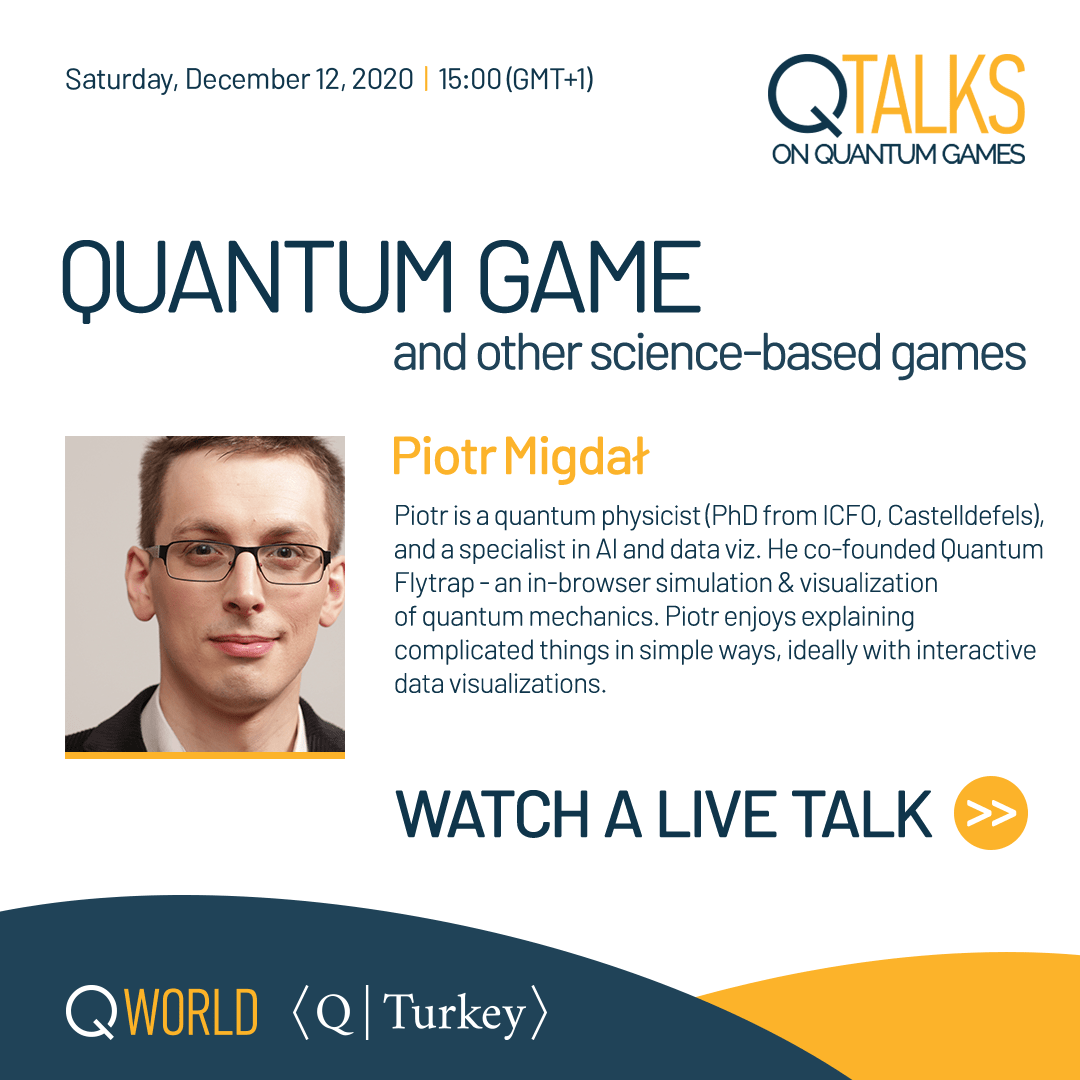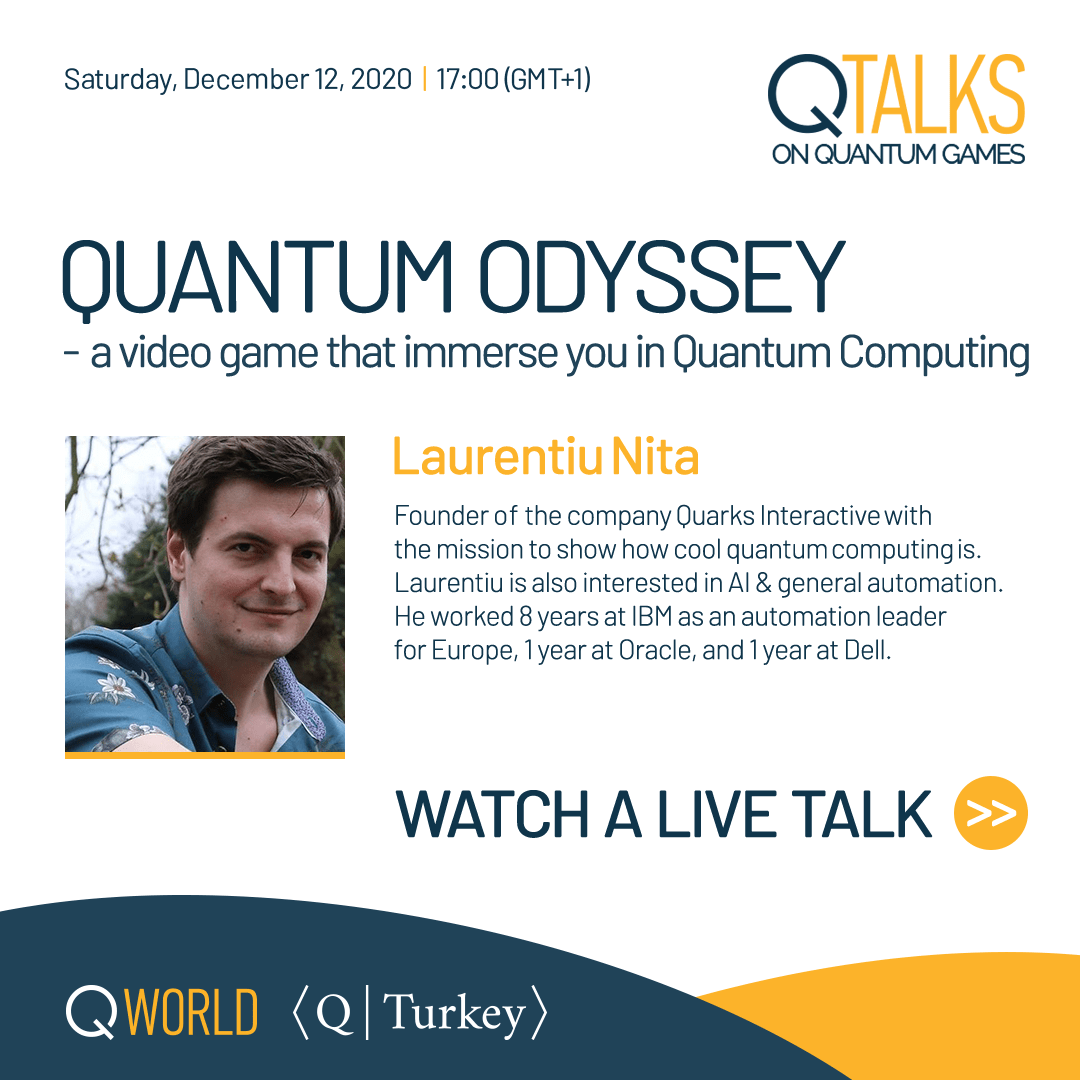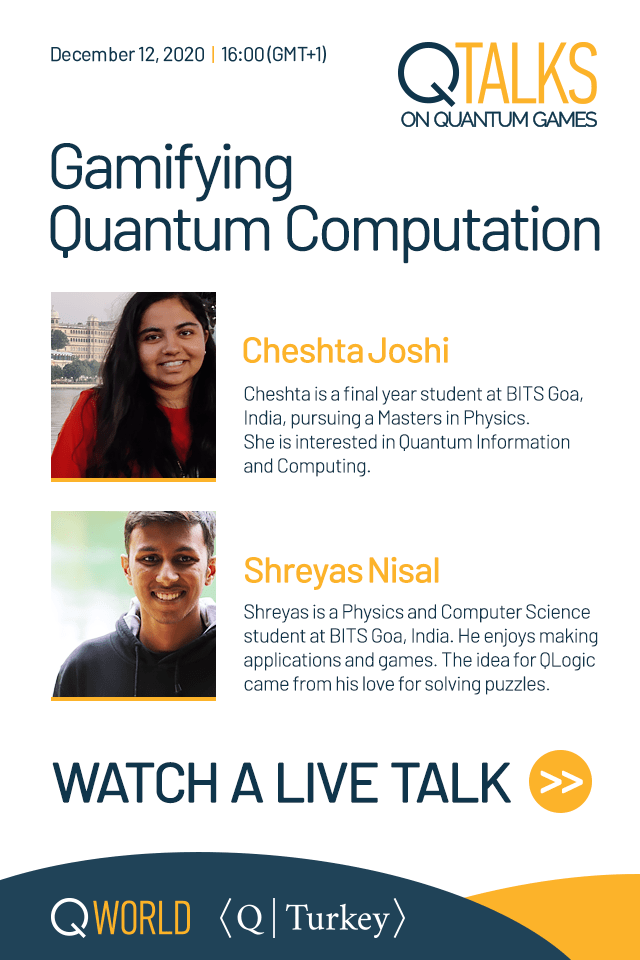Article web page:
Hi everyone, On December 12, we will have 3 QTalks on quantum games. Don't miss this opportunity to get to know more about quantum games!
Please visit https://qworld.lu.lv/index.php/qtalks/ for more information and registration.
See you next weekend!
Saturday, December 12, 2020 | organized by QTurkey
15:00 (GMT+1) Quantum Game and other science-based games by Piotr Migdał
16:00 (GMT+1) Gamifying Quantum Computation by Cheshta Joshi & Shreyas Nisal
17:00 (GMT+1) Quantum Odyssey – a video game that immerse you in Quantum Computing by Laurentiu Nita
From Piotr: Quantum Game with Photons is a puzzle game simulating an optical table. You can interact with superposition, entanglement, measurement, and other quantum phenomena with a LEGO bricks-like interface. I will mention Explorable Explanations and other science-based games related to other aspects of physics or computing. The main goal is to inspire YOU to make YOUR own quantum game. I will share some resources that may be inspiring or directly used to create your game (even if it is your first game).
From Cheshta and Shreyas: Entry into quantum computing is often daunting. We move from classical computers which work on zeros and ones to quantum computers, where quantum-bits can be in superpositions (mixtures) of zeros and ones, and where these bits can become correlated to each other. To simplify understanding these phenomena and to understand logic gates used in quantum computers, we developed QLogic, a puzzle game based on quantum computing.
From Laurentiu: Quantum Odyssey is first, a video game. The player does not need to know any math, physics or anything about computation or quantum; or even be a fan of quantum computation (it can be played just for the fun of solving a new type of a puzzle game)./>
The odyssey starts by discovering bits, linear algebra, complex numbers, qubits, all quantum phenomenon and important algorithms. By the end of the playthrough, the Player will have all the “hacker tools” needed to design their own algorithms, understand papers on Universal Quantum Computing and create their own or find more efficient dozens of gates long quantum algorithms.



